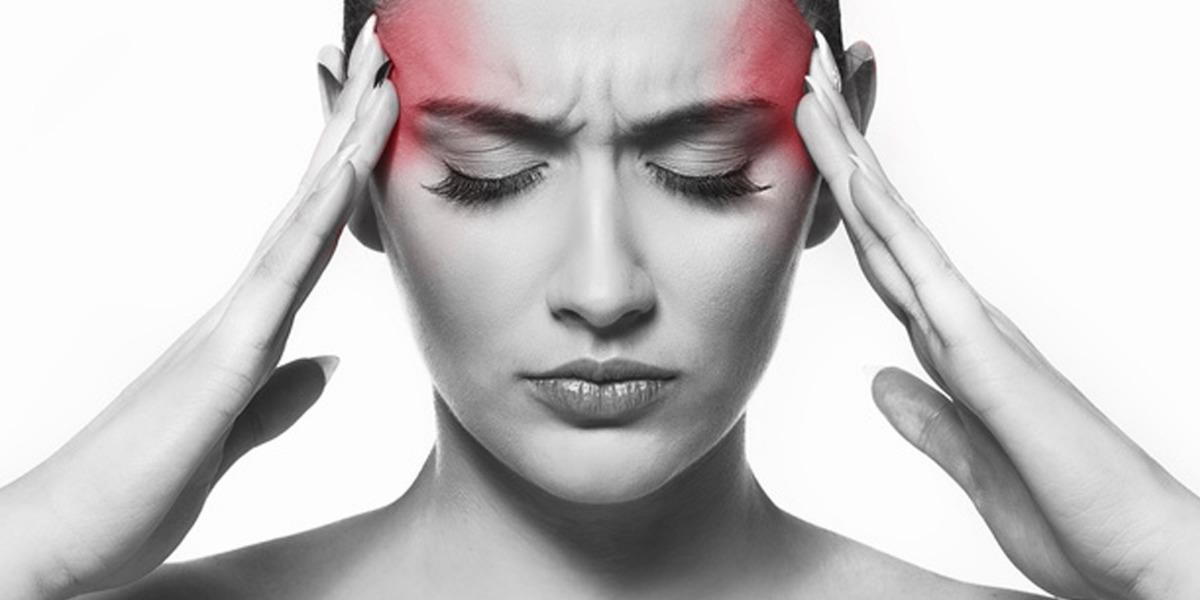What's causing your headache?
posted: Jul. 20, 2018.

This week on the blog I want to cover a topic many of us are very familiar with: Headaches. You'll learn what they are and how to treat them effectively whether you're at home or at the clinic.
There are 2 main types of headaches: Tension and Migraine. Tension is far more common but migraine headaches are also very important. Between the two they represent the majority of headaches symptoms suffered by millions of Americans.
Tension headaches are caused by different types of stress placed on your system.
Emotional stress is caused by situations at home or at work that cause you to become anxious, worried, angry or upset. Any negative emotion can contribute to emotional stress which can cause you to tense up and promote further physical stress.
Physical stress is the amount of physical strain you place on your muscles. This strain can come from extended periods sitting in a work chair with poor posture - having the head and neck slump forward. Physical damage to your muscles and ligaments from an accident or injury is another form of physical stress.
Chemical stress is what happens when there is a biochemical imbalance in the body caused by having too much or too little of a substance. For example some headaches can be cause by too much caffeine or alcohol while others can be caused by not having enough nutrients, like magnesium.
At the office we diagnose and treat headaches on a daily basis. Some of the most chronic types of headaches can be caused by increased pressure on the nerves of your spine that are located at the base of your skull. This pressure can come from any of the types of stress we discussed earlier.
We normally start by looking for tight knots or trigger points in the muscles in the back of the neck, at the base of the skull, the shoulders and finally around the temples. We then treat by using manual techniques to release the knot and loosen the adhesions between soft tissues, including muscles and connective tissue, sometimes called fibrosis.
Some people come in with a “pinched nerve” in their neck or shoulders and this can also lead to headaches over long periods. A pinched nerve, in reality, is usually either:
-
Muscle spasm
-
Severe trigger point or knot
-
A joint restriction in the spine
Treating the muscle knots and spasm can be done easily through manual techniques like friction massage or professional manual therapies like active release technique (A.R.T.) or ConnecTx instrument assisted soft tissue mobilization (IASTM) both of which we perform regularly.
Commonly, the real problem is at the level of the joint between two spinal vertebrae. A spinal restriction happens when the muscles and ligaments connecting two bones tighten up or get stuck. This causes the sensitive muscles, joints and nerves to become irritated and sore. If you moved the muscles but the joint restriction isn't removed, a headache, and further neck pain may continue. As chiropractors, we treat these joints by providing a gentle force to help unlock them and allow the bones to move properly. We call this manipulation an “adjustment” and we perform them using both manual and instrument assisted techniques to remove pressure from the nerves.
In the US 2.1 billion people are affected by headaches every year. That's 20.8% of the population. Of concern, is that 35% of all Emergency Department visits for a headache were treated with opioid drugs, potentially addictive and lethal medication. On the other hand, the research on chiropractic adjustments has found it’s effective in treating many forms of headache like cervicogenic headache and migraine.
As chiropractors, we are professionals that specialize in removing those spinal restrictions. Some things you may want to try at home include using ice or moist heat to help improve your circulation to your neck muscles and gently massaging the muscle fibers to help ease muscle tension. A good stretching regimen, which should be tailored to your individual imbalances, can keep the tissues healthy. Attempting mindfulness techniques like meditation, and an exercise routine can all be helpful in maintaining good spinal health and preventing headache symptoms.
If you deal with headaches, and especially if they are interfering with how you want to live your life, I encourage you to seek out a qualified chiropractor; If you are in the Irwin, PA area, we offer complimentary consultations available right here on our homepage. We’re happy to provide a helpful alternative to medication and frustration.
-PS
As an exercise therapy center, our clinic also boasts a rehab center located in the Backroom. Sometimes muscle imbalances can cause chronic headaches in lazy or deconditioned individuals. At Beretta Chiropractic we restore normal muscle balance by training your body through physical therapy exercises and teaching you home exercise plans to eliminate your symptoms.